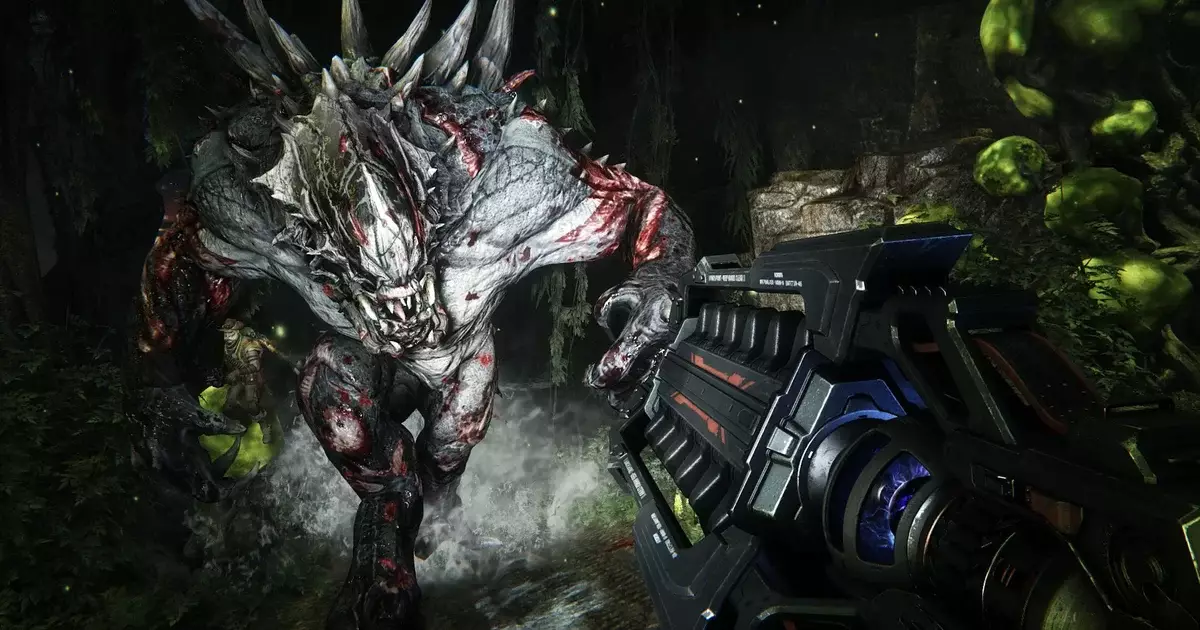Evolve represented an ambitious attempt to redefine multiplayer gaming by blending elements of predator and prey into a dynamic asymmetrical experience. At its core, it promised the thrill of hide-and-seek between a colossal, menacing creature and a soldier squad armed to the teeth, poised to contain or hunt down the beast. The game’s premise was compelling—a high-stakes chase amplified by a vehicle of shared tension and strategic depth. However, beneath this exciting surface lay systemic flaws that ultimately undermined its potential, revealing deep-seated issues within the live service model that many developers eagerly embraced.
What Evolve excelled at was its inventive gameplay. The alien monster, with its rapid movement and upgradeable arsenal, offered players a sense of raw power. Meanwhile, the hunters’ diverse gadgets and abilities—tracking, shielding, detonation—created a layered, tactical environment. The initial thrill of playing as Wraith, a sneaky, warp-capable predator, felt profound; it conjured the experience of being an elusive, unstoppable force. Yet, despite these strengths, the game’s design was marred by grind-heavy progression and a relentless push towards unlocking content through microtransactions. This focus on monetization slowly corroded the enjoyment, transforming what should have been a fun and competitive game into a tedious chase for unlocks.
The Dead End of Microtransactions and Forced Progression
The monetization strategy of Evolve was a pivotal factor in its decline. Instead of focusing on refining core gameplay, the publishers prioritized extracting revenue from a dedicated yet frustrated player base. The introduction of paid downloadable content, along with a costly unlock system, created barriers to enjoyment that alienated many. This approach fostered a perception of pay-to-win and underscored a broader industry trend where monetization often took precedence over game quality.
This strategy was a critical misstep. It turned what could have been a pure multiplayer experience into a compromised product, overshadowed by the grind and the promise of additional paid content. When 2K Games eventually attempted to pivot Evolve to free-to-play and subsequently delisted it, it underscored how damaging these business choices had been. The community’s resilience, holding onto a sliver of life via dedicated Discord channels, highlights what could have been—an engaging game hamstrung by greed-driven priorities.
The Lost Opportunity for a Bold Sequel and Creative Revival
Behind the scenes, Turtle Rock Studios had the seeds for a much-needed evolution—an Evolve 2 that might have addressed the original’s shortcomings. Concept art and pre-production sketches reveal ideas for fresh, more linear missions and diverse environments, hinting at a more structured, narrative-driven approach. The inclusion of locations resembling asteroid mining stations and haunted industrial complexes suggested a willingness to explore more immersive worlds, rich in atmosphere and storytelling.
However, that vision was ultimately abandoned. The studio shifted focus to other projects, such as Back 4 Blood, which, despite its own issues with grind, leaned into cooperative horror rather than asymmetrical multiplayer. The cancellation of Evolve 2 was a lost opportunity for Turtle Rock to create a sequel that could have refined its innovative mechanics while distancing itself from the pitfalls of its predecessor’s monetization strategies. The concept art hints at a game that would have been darker, more intense, and perhaps more commercially sustainable.
Reflections on Industry Trends and the Future of Innovative Games
Evolve’s story serves as a cautionary tale about how industry practices can strangle innovation. The game’s initial promise was authentic and compelling, but its execution was hampered by a model that prioritized revenue over player experience. Despite its flaws, the ambition behind Evolve was laudable, and the concept of a predator-prey multiplayer experience remains fertile ground.
Interestingly, community-driven efforts to keep Evolve alive reflect a persistent desire for the kind of innovative gameplay it offered. This resilience echoes in other franchises like Aliens Vs Predator, which have seen rebirths rooted in dedicated fanbases. These cases show that with the right approach—focusing on quality, fair progression, and community engagement—such games can endure beyond their commercial lifespans.
As the industry continues to evolve, developers should take note: bold ideas require careful balancing between monetization and player satisfaction. The future belongs to those willing to revisit past failures with fresh perspectives, fostering creativity that isn’t shackled by the shortsightedness of today’s live service obsession. The lessons of Evolve underscore that innovation thrives when it’s driven by passion and integrity—values that might very well shape the next wave of groundbreaking multiplayer experiences.


Leave a Reply